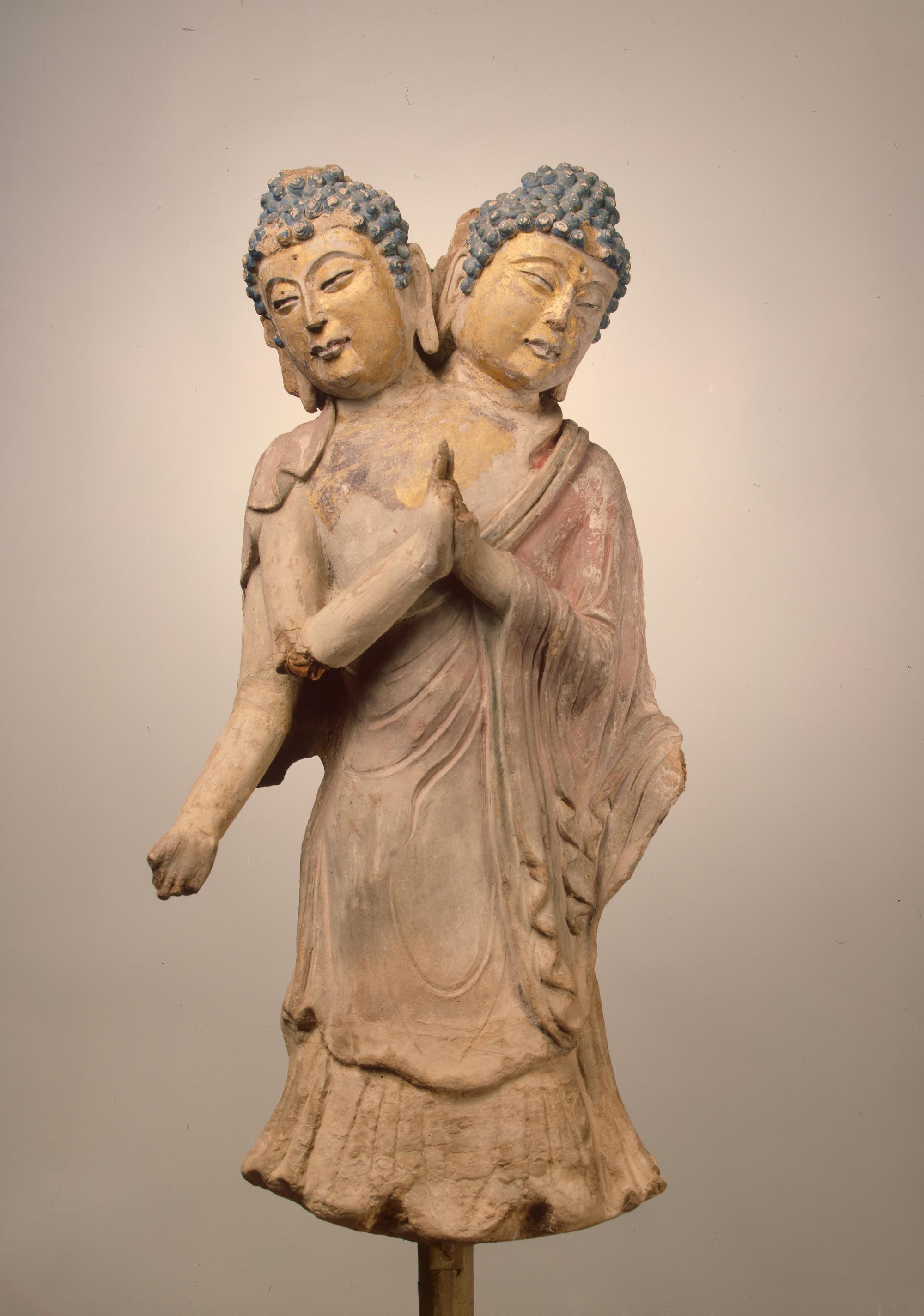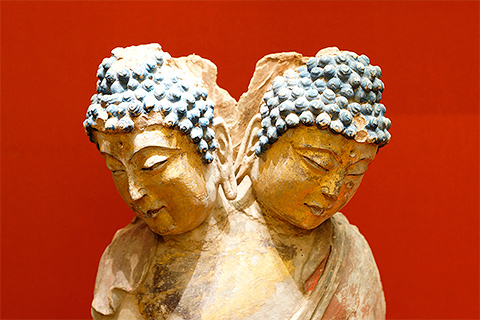Double-Headed Buddha


Title: Double-Headed Buddha
Place: China, Tangut State of Xi-Xia, Khara-Khoto
Date: 13th-14th century
Archaeological site: Suburgan, Khara-Khoto
Material: clay, with mineral paints and gilding
Dimensions: h. 62 cm
Acquisition date: Entered the Hermitage in 1933; transferred from the State Russian Museum
Inventory Number: ХХ-2296
The State Hermitage Museum, St Petersburg, Russia
This story was told to a Chinese pilgrim during one of his long wanderings in the north:once upon a time, there were two men, both devoted to the teachings of Buddha. Each of them dreamed an image of the Buddha, but they were too poor to pay for two sculptures, so they asked an artist to make them only one. Buddha himself, in an act of kindness, divided the image in two. Kindness, or compassion, is an important teaching of Buddhism.
This clay statue was found in the stupa uncovered by Kozlov in 1909.
Akshardhool Stories: Black Castle of the desert

Two Headed Buddha.
Khara Khoto. Period of the Mongol invasion (1227 – late 14th century).
Clay, straw; traces of paint and gilding
Comments
Post a Comment